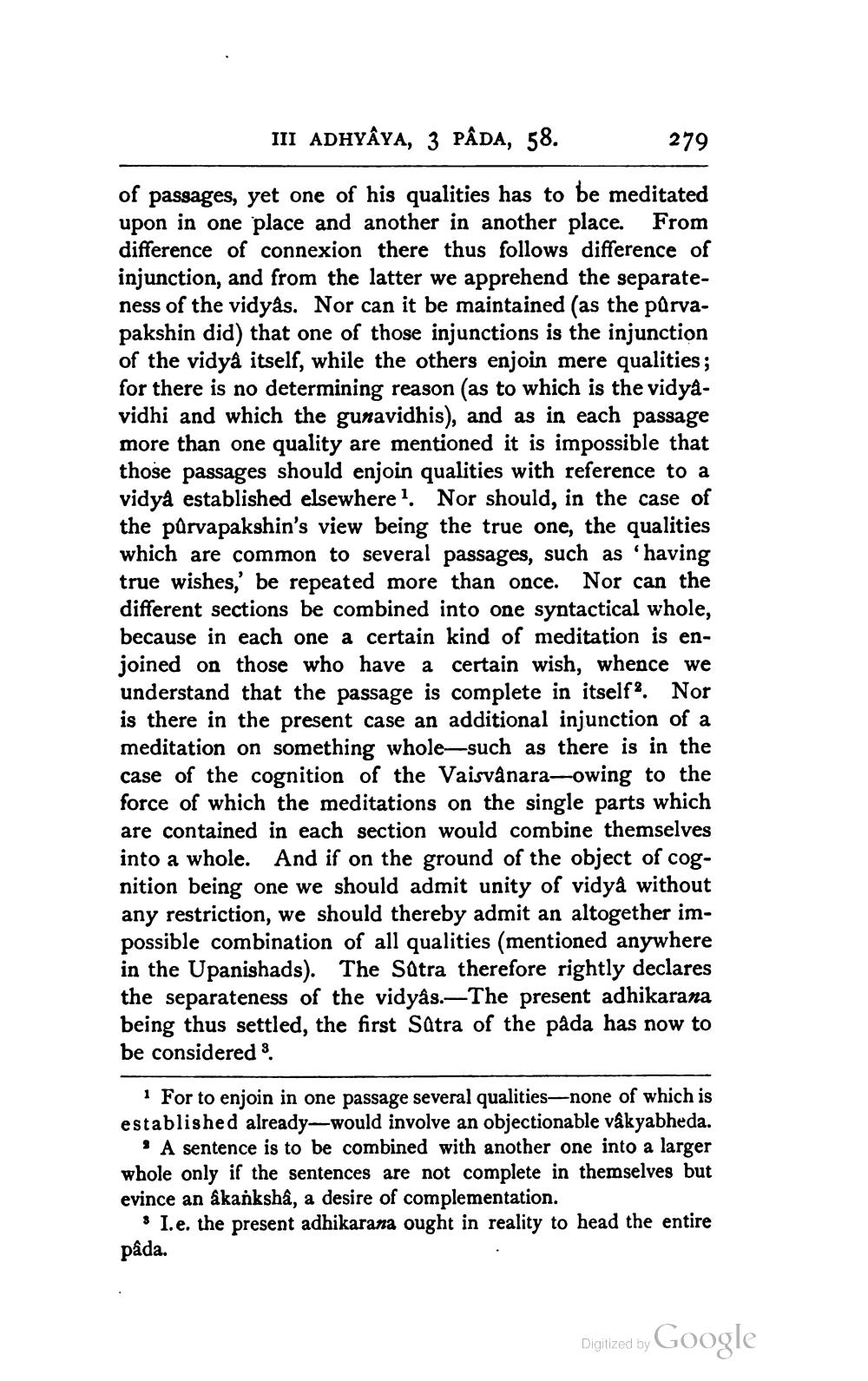________________
III ADHYAYA, 3 PÂDA, 58.
of passages, yet one of his qualities has to be meditated upon in one place and another in another place. From difference of connexion there thus follows difference of injunction, and from the latter we apprehend the separateness of the vidyâs. Nor can it be maintained (as the purvapakshin did) that one of those injunctions is the injunction of the vidyâ itself, while the others enjoin mere qualities; for there is no determining reason (as to which is the vidyavidhi and which the gunavidhis), and as in each passage more than one quality are mentioned it is impossible that those passages should enjoin qualities with reference to a vidya established elsewhere 1. Nor should, in the case of the purvapakshin's view being the true one, the qualities which are common to several passages, such as 'having true wishes,' be repeated more than once. Nor can the different sections be combined into one syntactical whole, because in each one a certain kind of meditation is enjoined on those who have a certain wish, whence we understand that the passage is complete in itself2. Nor is there in the present case an additional injunction of a meditation on something whole-such as there is in the case of the cognition of the Vaisvânara-owing to the force of which the meditations on the single parts which are contained in each section would combine themselves into a whole. And if on the ground of the object of cognition being one we should admit unity of vidya without any restriction, we should thereby admit an altogether impossible combination of all qualities (mentioned anywhere in the Upanishads). The Sutra therefore rightly declares the separateness of the vidyâs.-The present adhikarana being thus settled, the first Satra of the pâda has now to be considered 3.
279
1 For to enjoin in one passage several qualities-none of which is established already-would involve an objectionable vâkyabheda.
• A sentence is to be combined with another one into a larger whole only if the sentences are not complete in themselves but evince an âkankshâ, a desire of complementation.
I.e. the present adhikarana ought in reality to head the entire
pâda.
Digitized by Google




